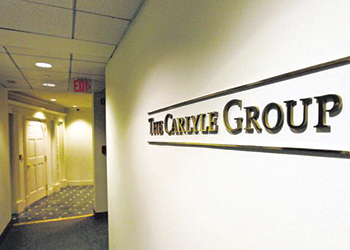
 Carlyle .. causing a flutter
Carlyle .. causing a flutter
Carlyle Group LP’s decision to abandon a Texas crude export project this month marked the start of a shakeout among the nine deep water terminal proposals vying to export US shale, said investors and analysts.
Its departure from the venture "is a testament to how heated the field is," said Michael Tran, a managing director at RBC Capital Markets in New York. Rivals without Carlyle’s deep pockets "could face a similar fate," he said.
The five US crude export projects currently under federal review would add a combined 8.36 mbpd of export capacity, about two-thirds of current US oil production.
The Carlyle facility, which is under review by a different federal authority, would boost that total even more. Its construction partner, Berry Group, has vowed to continue the project.
Carlyle, a Washington D.C.-based private equity firm, launched its $1 billion Corpus Christi, Texas, export terminal a year ago, challenging projects now underway by trader Trafigura and pipeline operators Enbridge, Energy Transfer and Phillips 66, among others.
Carlyle’s Lone Star Ports aimed to store up to 4 million barrels of crude and load 1.4 million barrels per day (mbpd) onto tankers from an island near Corpus Christi. It quit the venture without providing a reason.
Ferris Hussein, a Carlyle managing director, declined to comment on the reason for its withdrawal.
Magellan Midstream Partners also dropped plans to develop its own onshore export terminal near Lone Star’s project. It continues to explore options with others to develop an oil export facility in Corpus Christi, spokesman Bruce Heine said.
A third project, Jupiter MLP, recently pushed back its schedule. An official said slowing shale output growth and falling pipeline costs make shippers hesitant to commit to a project.
"People are unsure of future growth rates in the shale plays at the moment," explained Tom Ramsey, chief executive at Jupiter. A year ago, Jupiter said it had financing to proceed with its terminal near Brownsville, Texas.
"The anchor shippers are at a disadvantage and not willing to make long-term commitments to get barrels on the water unless they are guaranteed to have the lowest rate going forward," Ramsey said.
In the Corpus Christi, Texas, area where Lone Star Ports is one of three proposed deepwater projects, more than 19 million barrels of new storage capacity that could aid exports was under construction as of this month, according to data provider Genscape.
Some of that capacity will boost existing onshore terminals, such as Moda Midstream LLC’s. It can partially load supertankers at its Ingleside, Texas, docks and with coming storage expansion will be able to load up to 2 mbpd on tankers next year.
"The large majority of the VLCC (Very Large Crude Carrier) projects will not get done," said Kendrick Rhea, an analyst at consultancy East Daley Capital, adding existing terminals could easily increase their exports.



































































